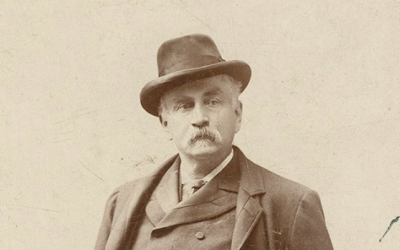U.S. Army laundresses, often wives of senior enlisted men, were once given daily rations, quarters, fuel, bedding straw, and medical services. An article in Nebraska History magazine (Winter 1980) reported on the “ladies of Soap Suds Row,” who not only washed for soldiers on Nebraska and other western military posts, but provided social contact and occasional nursing care as well.
The United States Army had adopted the institution of company washerwomen from the British, giving them legal recognition in 1802. An act passed by Congress in that year allowed four laundresses to a company with one daily ration to be issued to each. Enlisted men and officers paid for their laundry at a rate determined by the post council of administration. In general, laundry rates established by post councils reflected the average wage scales for unskilled labor at most military posts. For example, the Fort Boise, Idaho, post council in 1866 set laundry rates at two dollars monthly for officers and one dollar monthly for enlisted men.
Living quarters for laundresses ranged from substandard to the barely adequate. Fort Sidney, Nebraska, in 1872 had laundress quarters measuring 71 feet by 140 feet. Constructed of cement and stone with shingle roofs, they were designed to accommodate three families. Seventeen years later in 1887 the post surgeon condemned the laundress housing then in use because of “poisonous” sanitary conditions. Fort Robinson in the late 1880s had a better maintained area for laundry work and offered an enlisted man, his laundress wife, and children a section of a 144-by-35-foot building built for twelve families.
Laundresses often performed other services besides washing clothes for enlisted men and officers. They served as part-time cooks and maids in the officers’ quarters and functioned as midwives and nurses. Their laundry fees and the extra rations they drew, enabled the soldier’s family to live more comfortably. However, the cost of providing rations, fuel, quarters (and transportation when soldier husbands were reassigned) gradually convinced the U.S. Army to discontinue the service of laundresses. Official recognition of laundresses was discontinued when the authority to issue rations to them expired on June 18, 1883, and was not renewed.
(August 2003)



